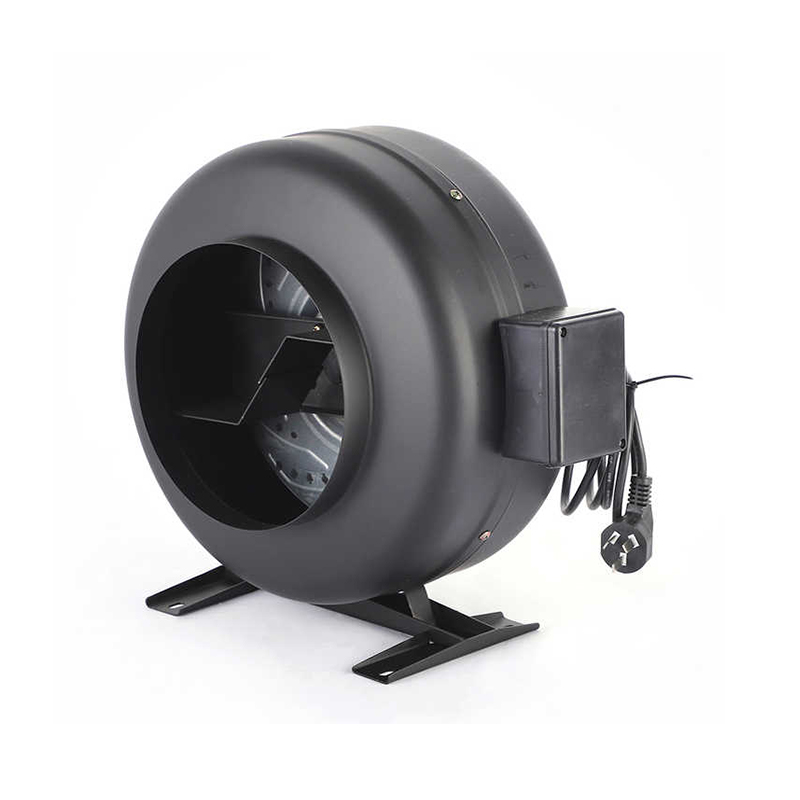Qinlang focuses on providing high-quality products and considerate services, and is committed to meeting every expectation of our customers.
The DKT-133 Cooling Ventilation Double Inlet Air Conditioning Fan is d...
See DetailsIn the hustle and bustle of a commercial kitchen, maintaining a safe and efficient environment is paramount. Fire safety codes play a crucial role in ensuring that restaurants can operate with minimal risk of fires and other hazards. Among the many elements that must adhere to these codes are commercial restaurant exhaust fans, restaurant extractor fans, and restaurant kitchen exhaust fans. These systems are not just about removing heat and smoke; they are integral to fire prevention and response strategies. This industry news piece will shed light on what is required by fire safety codes for these essential pieces of equipment.

Understanding the Role of Restaurant Kitchen Exhaust Fans
Restaurant kitchen exhaust fans are designed to manage the airflow in a commercial kitchen. They are responsible for extracting smoke, grease, and heat generated from cooking processes, thus preventing the buildup of hazardous conditions. Restaurant extractor fans and commercial restaurant exhaust fans are not just about comfort—they are about safety. Fire safety codes mandate that these systems be installed and maintained to specific standards to minimize the risk of fire and ensure quick response in case of an emergency.
Fire Safety Codes and Restaurant Extractor Fans
Fire safety codes vary by region and jurisdiction, but they all share a common goal: to protect people and property from fire. For restaurant extractor fans, this means that they must be capable of handling the high volumes of smoke and heat generated in a commercial kitchen. Codes often specify the minimum air exchange rates, which determine how many times the air in the kitchen should be replaced per hour. This is crucial for preventing the accumulation of combustible fumes that could cause a flash fire.
Installation Standards for Commercial Restaurant Exhaust Fans
The installation of restaurant kitchen exhaust fans is another area where fire safety codes have specific requirements. Fans must be installed at a certain distance from combustible materials to reduce the risk of fire spreading. Additionally, the ductwork connected to these fans must be made of materials that can withstand high temperatures and are resistant to grease buildup. Commercial restaurant exhaust fans must also be equipped with fire suppression systems, such as automatic fire extinguishers, to put out any fires that may start in the ductwork.
Maintenance and Inspection of Restaurant Kitchen Exhaust Fans
Regular maintenance and inspection are key components of fire safety codes for restaurant kitchen exhaust fans. Fans and their associated ductwork must be cleaned and inspected at frequent intervals to ensure they are functioning properly and to prevent the buildup of grease, which is a significant fire hazard. Codes often dictate the frequency of these inspections and the qualifications of the personnel who perform them, ensuring that only trained professionals are handling this critical aspect of fire safety.
Compliance and Consequences
Non-compliance with fire safety codes regarding restaurant kitchen exhaust fans can have serious consequences, including fines, closure of the establishment, and even legal action. More importantly, failing to meet these standards can put lives at risk and result in devastating fires. It is the responsibility of restaurant owners and operators to ensure that their commercial restaurant exhaust fans, restaurant extractor fans, and restaurant kitchen exhaust fans are up to code and functioning as intended.
In the high-stakes environment of a restaurant kitchen, every detail counts, especially when it comes to fire safety. Understanding and adhering to the requirements for commercial restaurant exhaust fans, restaurant extractor fans, and restaurant kitchen exhaust fans is not just a matter of compliance—it's a matter of life and property. By installing, maintaining, and inspecting these systems according to fire safety codes, restaurant owners can protect their staff, customers, and business from the devastating effects of fire.